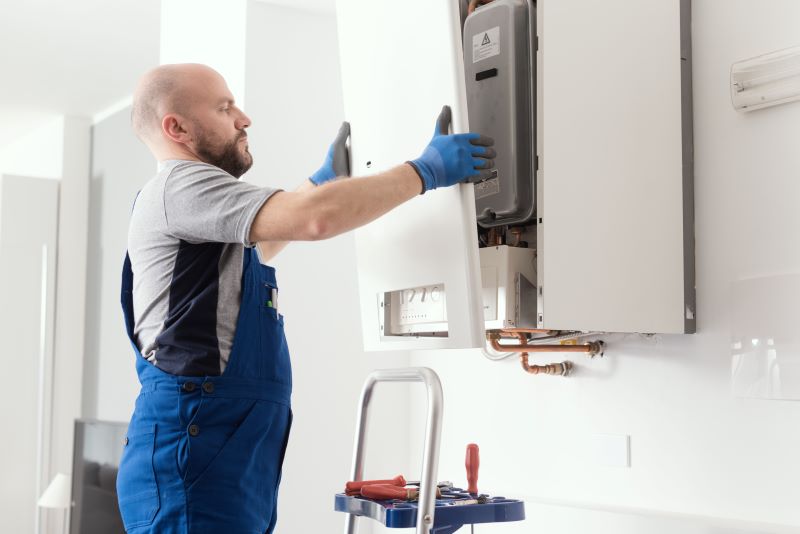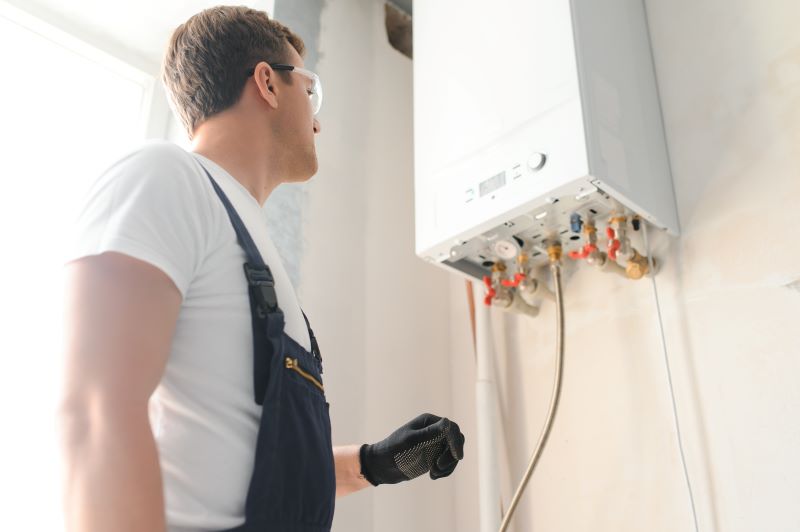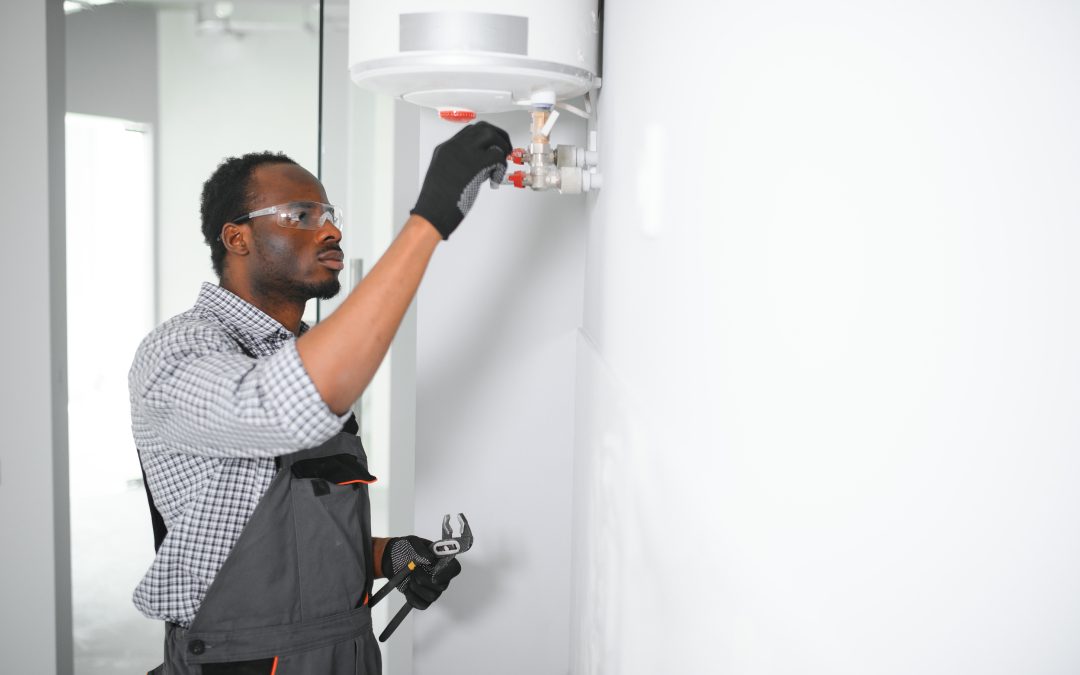Are you interesting in learning what will replace gas boilers in 2025? The UK’s commitment to being a zero emissions nation by 2050 has put a tremendous amount of pressure on every industry.
The aim of decarbonising every sector of the economy poses a different challenge for everyone, but it’s felt most keenly by those working in heating.
Heat is the largest source of global energy consumption, and it’s no exaggeration to say that in climates like ours in the UK, it can be a matter of life or death.
It may suck up energy, but heating is non-negotiable. So, what will replace gas boilers in 2025?
Is there a gas boiler ban in 2025?
There’s conflicting information on what exactly will happen to gas heating in 2025.
Currently, there’s no concrete ban incoming on gas boilers in 2025. Although ‘gas boiler ban’ is thrown around in common parlance when talking about carbon-cutting initiatives of the near future, this is strictly more of a shorthand for what’s likely to happen, not what’s scheduled to take place.
Those in the know might see this as splitting hairs; there’s a high likelihood that, in order to meet targets, newly built homes won’t be using even the most efficient of gas boilers.
But where did this idea come from, and why 2025?
The UK government is expected to introduce the Future Homes and Buildings Standard in 2025, which outlines a set of regulations for new homes. Chiefly, the standards are set to require that new builds have to have CO2 emissions between 75 and 80 per cent lower than those set out by current standards.
To ease the construction sector into this new legislation, changes to buildings regulations made in June 2022 state that new homes have to reduce carbon emissions around 30 per cent from previous levels.
Still, an escalation to the higher figure in a few years’ time remains a lofty goal.
Because of that, it seems all but certain that these homes won’t be using gas boilers and instead will rely on alternative forms of heating and hot water. However, this is still not a guarantee.
In the government’s Heat and Buildings Strategy, published in October 2021, the careful use of language is clear.
In its at-a-glance summary of the strategy’s mission, it states the “ambition of phasing out the installation of new natural gas boilers from 2035”.
Later in the document, it additionally states that it “will also consult on ending new connections to the gas grid.”
While it seems highly likely the aim will be to limit the amount of new homes that will connect to the gas grid—in some form, at least—this might not necessarily take the form of a gas boiler ban in 2025.
At the very least, some properties may use a combination of access to the gas grid and other sources of heating to at least reduce the gas dependency of certain new properties. Right now, there’s still uncertainty around the exact path the future will take and there’s still many options to consider.
If deemed safe enough, one of the options discussed in the Heat and Buildings Strategy is the injection of up to 20 per cent hydrogen by volume into the gas grid. Similarly, the inclusion of biomethane is being looked at as a possible option to reduce carbon emissions.
However, both of these ideas would be useless for new homes if they were all set to be built separated from the gas grid. So, we can’t rely too heavily on the idea of an outright ban just yet, even with the standards just a handful of years away.
In the strictest terms, what the UK government is definitely aiming for is a “phasing out” of gas boilers, leading to eventually turning away from fossil fuels completely.
How does the gas boilers ban in 2025 affect me?
A gas boiler ban as it’s currently envisioned will mean a wide range of things for different people. For some, it won’t really mean a thing. For others, it might be a big consideration in their living conditions.
If you’re a homeowner or living in a rental property that uses a gas boiler, a 2025 ban won’t affect you in any immediate way. You’ll still be able to use your boiler and it won’t need replacing just on the basis of using gas.
You’ll also still be able to have it serviced and repaired the same as ever, and it may be that you can replace it due to the existing connection to the gas grid. However, this remains to be seen for definite, and the government is likely to encourage moving away to alternatives.
After all, the majority of homes in the UK are connected to the gas grid, and the longstanding infrastructure that addresses our heating isn’t going to disappear overnight.
The people most affected by a 2025 ban are those taking buying a new-build property, or others who are looking to move from their current property to a newer one.
While this doesn’t mean you’re moving into a home that will have no heating, it may not have the systems you’re used to if you’ve always known heating with a gas boiler installation at the heart of it.
However, given the aim of greater efficiency and lowered emissions with these new systems, you’d expect to pay smaller energy bills and enjoy a more thermally efficient home.
What will replace gas boilers in 2025?
This is the big question, and there’s still no definite answer as to what will replace gas boilers in 2025. There are some top contenders though.
Heat pumps have been widely discussed as a possible alternative. These systems draw heat from the ground, ambient air outside the home, or even a body of water if one is close enough (and feasible as a source). Different types of pump have different costs and efficiencies associated with them, with ground source pumps overall the most effective (and expensive).
Heat pumps are generally more efficient in their energy use, since they run on electricity and don’t burn a fuel source directly like gas boilers. However, installing one in your home as a transition from a gas boiler would require digging up your garden so that a coolant system can be buried beneath the soil. This needs to be buried fairly far down, at a depth of between 50 and 150 metres.
These space and condition requirements leave some homes unsuitable for ground pumps, or perhaps any heat pump source whatsoever. The general difficulty and expense involved in their installation might also make them an unattractive prospect for many homeowners, especially when compared to the quick, clean, and straightforward work of a combi boiler installation.
Still, the combustion-less operation and potential lifespans of heat pump systems mean they’re far from ruled out yet, and for some they might be the ideal way to heat the home.
Another option is the notion of hydrogen-ready boilers. These boilers would be engineered to burn either a 100 per cent ‘pure’ source of hydrogen gas, or a hydrogen blend like we mentioned earlier. The latter would see around 20 per cent hydrogen mixed with 80 per cent natural gas.
Switching to hydrogen-ready boilers is considered an attractive option for a number of reasons. The first is that the wider conversion would be fairly non disruptive, using the same gas network already in place and utilising boilers that would fit in all the same places currently occupied by gas boilers.
Hydrogen-burning boilers would act in much the same way as current gas boilers and provide heat with the same level of responsiveness and speed, making them essentially much greener versions of what many people are already using in their homes. When current gas boilers eventually fail and need replacement, hydrogen boilers could theoretically be put in their place with little complication.
While not a top choice typically discussed in possible replacements for gas boilers installations, electric boilers might present a good option for people looking to move away from gas. This could be an attractive prospect for some if the UK’s electricity supply finds better renewable sources and undergoes the necessary work needed to increase its capacity.
Given the push to increase electric vehicles on roads and the jump in demand this will—and has already started to—generate for electricity, infrastructure upgrades will most definitely need to take place first. Like many questions concerning power consumption in the future, the answers are still up in the air.
Here in the UK, we also face a problem with insulation. Many of our homes are poorly insulated and draughty, and older homes are often single brick constructions that draw inevitable problems with damp and cold.
It’s likely that, going forwards, we address problems with heating not only by overhauling the heating systems themselves to be more efficient, but also the homes in which they’re installed. While new homes are built with a focus on good insulation and thermal management, older homes will need a lot of retrofitting to bring them up to speed.
Insulation doesn’t replace the need for a boiler, but it will likely be part of a combined solution to heating.
Will my gas boiler be legal after 2025?
Gas boilers that are already installed and running will be safe. Even if a house is in the process of being built come 2025, it’s unlikely that changes will need to be made mid-construction, and that any ban will apply to houses that begin construction past the rules’ start date.
However, we can’t know for definite yet, and we’ll need to wait and see just how the UK government handles the details.
With gas boilers eventually facing a phase out as per the government’s own stated goals, it’s inevitable that homes with gas boilers installations will eventually need to get new systems fitted.
This will most definitely not be taking place in 2025. The government may announce a separate timeline for this phase-out of existing gas boiler systems, but just a handful of years is far too short to turn such a plan around, and there are still many unresolved questions about what will replace gas boilers as we discussed earlier.
The skills of Gas Safe engineers aren’t going to go away overnight, so you’ll be able to get services and repairs on your gas boiler long past 2025. If the UK turns to bolstering its gas supplies with hydrogen, boiler services as we know them will largely be the same, albeit with a slight change in your engineer’s knowledge and training.
Should I replace my boiler before 2025?
If your gas boiler is getting on and is approaching the recommended time for renewal—about 10-15 years as a rule of thumb—then it’s probably a good time to think about replacing it anyway, regardless of time.
If you want a gas boiler to last as long as possible before there’s real talk about phasing them out, then replacing yours in the near future is probably a wise move. Many brands offer ten-year warranties on their models so long as you keep to regular servicing, so a new boiler should give you at least a decade of peace of mind.
If you’re looking for more information on what will replace boilers in 2025, a fresh gas, a new boiler installation or even combi boiler installation in the North West, get a quote from Bumblebee. Our customers trust and stand by our services thanks to the brilliant work we do, and we can get you up and running with a new boiler in no time.
To find out more and get a quote, contact us today.




